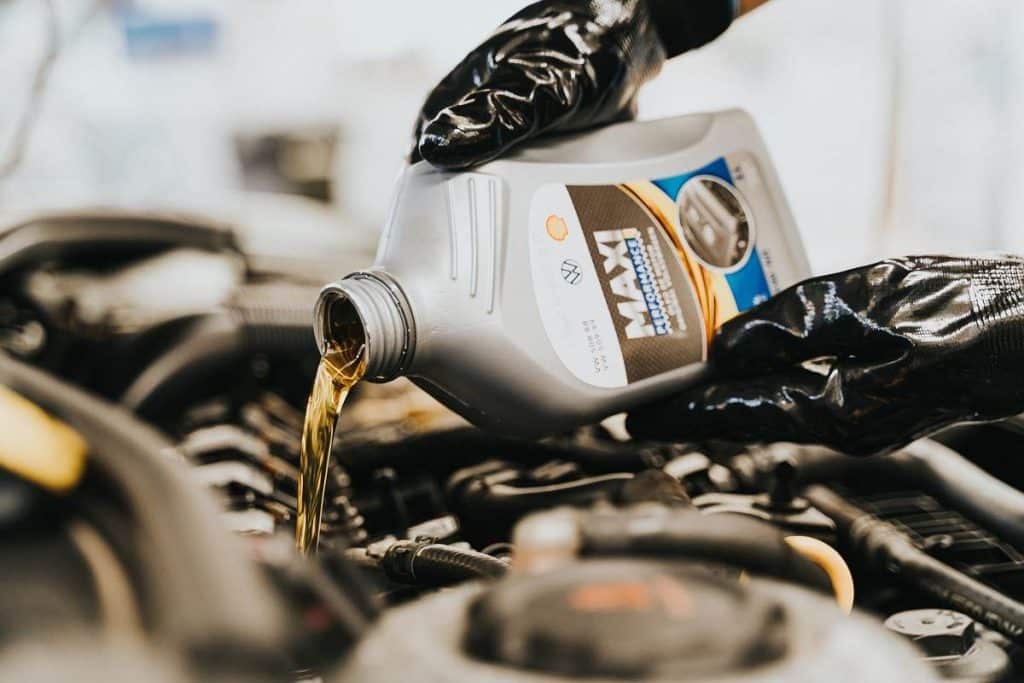Have you ever wondered about the secret life of your car veins where oil flows through — synthetic oil, or is your life happening outside and thinking about the car’s engine and oil — how are their condition now?
If so, don’t worry.
Synthetic oil can sit in an engine for several years, but on the shelf, it requires proper storage. Besides, an inactive engine may lead to moisture accumulation and reduced lubrication efficiency over time. But you know what, regular engine start-ups can help prevent these issues.
Today, we’re diving deep into the intriguing world of automotive lubrication, and starting with a question that’s been on the minds of many: How long can synthetic oil sit in an engine?
Yeah, I believe; since you are reading this content, synthetic oil is your a riddle topic — If you go with it or not, or what are the benefits you are gonna have from it if you go?
Here on mechanicpick, we are going to let you know what happens with synthetic oil if you keep it in a resting engine for long. After reading the article, you will have the answer and be able to decide whether you keep synthetic oil in an engine for long?

Understanding the Longevity of Synthetic Oil
In the world of engine maintenance, synthetic oil dazzles with its unique abilities. But how long can this automotive elixir continue to perform its magic? Let’s embark on a journey by understanding the longevity of synthetic oil.
Synthetic oil is specially made in a lab to last longer than regular oils because it’s free from things that make oils age quickly. But remember, it’s not invincible! You need to take care of it to make sure it lasts.
Think of temperature, and where you store it as the protectors of synthetic oil. Just like we feel better in comfy places.
Synthetic oil works best when it’s not too hot or too cold. It’s afraid of water, so keep it dry because even a little drop can make it age faster.
To make sure your synthetic oil lasts, follow what manufacturers say and take good care of it. Check how it looks regularly, and if it still looks good, it’ll work well.
In our journey to know how long synthetic oil lasts, we found its secrets and realised we’re its protectors. Taking care of it means our engines stay smooth for miles.
Factors Affecting Synthetic Oil Shelf Life
Several factors can influence the durability of synthetic oil shelf life. If you knew these factors, you could maintain the oil’s quality for a long time. Let’s talk about them.
Storage Temperature: Extreme temperatures, both hot and cold, can negatively impact synthetic oil. So keep it in a cool, stable environment to preserve its quality.
Exposure to Light: The sunlight and UV radiation speeds up oil’s degradation gradually. So you have to keep it away from direct sunlight.
Air Exposure: Exposure to air, this can cause the oil to become thicker and less effective. So you must seal the container tightly after every usage.
Moisture and Humidity: You must keep your synthetic oil away from moisture as it is a certain enemy of synthetic oil. It can lead to oxidation and oil breakdown.
Contaminants: Contaminants like dust, dirt, and debris can compromise the quality of synthetic oil.
Oil Additives: To keep the synthetic oil on your shelf, it’s better to follow the manufacturer’s recommendations. Because some synthetic oil contains different additives.
Use of Partial Containers: If there is still oil in your container, keep it into a small bottle. Otherwise, synthetic oil may lose its quality because of extra oxygen.
These are the points you have to follow up if you want to expand your synthetic oil shelf life.
Signs of Synthetic Oil Degradation
After a certain time, 6-12 months, it is better to change the synthetic oil of your car engine. But what if the oil lost its efficiency before the expected time?
You should not run the engine anymore.
Here are most 7 signs, once any of these happen to your car engine, replace the engine fluid asap — synthetic oil.
- Colour Change: It looks amber when it is fresh and new. After using it for a certain time, it becomes dark from clear or amber to brown or black.
- Reduced Fuel Efficiency: If engine oil loses its efficiency, it creates an impact on fuel too. So when your car engine consumes more fuel and oil than usual, it’s another sign of synthetic oil degradation.
- Unpleasant odours: Because of overheating, it creates a strange smell — something is burning. So it’s time to change to synthetic oil.
- Increased Engine Noise: When the oil loses its lubricating ability, the engine creates more sound/noise.
- Decreased Oil Thickness: Synthetic oil becomes thinner over time because it gets worn out from use and hot temperatures. When it gets thinner, it can’t protect the engine parts as well, resulting in changing the oil being essential.
- Check Engine Light: When the check engine light is on, it’s a sign of something inconvenient with your engine too. So check the synthetic oil if it has a reason.
- Sudden disruption: if the car engine suddenly turns off when driving, it’s also another sign of synthetic oil degradation.
So, aforementioned signs are the main signs of synthetic oil degradation. If you want to keep your car engine healthy, notice the signs and take action accordingly.
How to Extend the Lifespan of Synthetic Oil in Engine
Ensuring lifespan of engine oil impact on engine too. The more you take care of your car engine oil, the better your car engine performs and lasts long.
Extending the lifespan of synthetic oil in an engine is connected to good maintenance practice. Let’s talk about how to extend synthetic oil longevity.
Regular OIl Change: Fresh, clean oil always protects your engine and oil from happening troubles. So when it is required to change the oil, change it asap. This way you could expand the lifespan of your synthetic oil.
Quality Oil Filter: To keep your synthetic oil and engine healthy together, you must use a quality full oil filter. It increases the performance of the engine as well as reduces oil consumption.
Regular Maintenance: You must maintain the scheduled maintenance whether the engine or oil has any trouble. As a result, it defends the engine and synthetic oil from being easily damaged.
Drive smoothly: Not speeding up your car engine suddenly as it affects oil and engine directly. This way you can expand synthetic oil lifespan in an engine.
Avoid Extreme Conditions.
Proper Warm-up: When starting the engine, give a moment to warm up the engine. It helps increase synthetic oil lifetime.
Apart from these by monitoring oil level, cooling down the engine while it gets highly heated after a long run, including using the right oil helps to perform the engine best and extend the lifetime of synthetic oil in car engines as well.
The Impact on Engine Performance
If you’ve followed all the requirements and best practices for maintaining synthetic oil in your car engine, it should generally have a positive impact on your engine’s performance and longevity.
But here is a conscious note: Don’t put oil, conventional oil, in a stopped engine for long. It will badly impact on the engine performance and create odour.
However, the good news is synthetic oil offers numerous benefits, reducing the risk of engine related problems and it also reduces oil consumption. But this means not just using the oil but following the proper maintenance processes.
And then you can get a good performance from your car engine by using synthetic oil.
You can also read: Does thicker oil keep the engine cooler?
FAQ
Should You change Your Oil Every Year If You Don t Drive Much?
If you don’t run your car, you may change it annually as experts and manufacturers suggest. Besides, checking oil level is a good practice that allow you to refill it once it goes under the mark.
How Often Should Synthetic oil be Changed?
You have to follow the manufacturer’s recommendations and driving conditions. Typically, it lasts longer than regular oil (Conventional oil) in an engine but on the shelf it can last years.
Can Synthetic Oil Go Bad If not Used for a Long Time?
Yes, synthetic oil can degrade if left unused for an extended period. Moisture can accumulate, and its lubrication efficiency may reduce. Regular engine start-ups help prevent these issues.
Conclusion
In summary, you can be stress free if you store synthetic oil in the engine correctly. All you have to do is, regular maintenance and taking care of it to maintain its effectiveness.
Using synthetic oil can improve engine performance and longevity. Keep an eye out for signs of oil degradation and follow best practices to extend its lifespan.
Overall, synthetic oil is a smart choice for engine health and efficiency.
Recent Posts
High Quality Tire Repair Kit for Emergencies: Essential for Every Vehicle Owner
Flat tires can happen unexpectedly, leaving you stranded. A reliable tire repair kit is essential for emergencies on the road. Choosing the right tire repair kit...
Recommended Radiator Coolant for Vehicles: Top Picks for All Engines
Choosing the right radiator coolant is crucial for vehicle performance and longevity. A good coolant prevents engine overheating and protects against corrosion. ...
